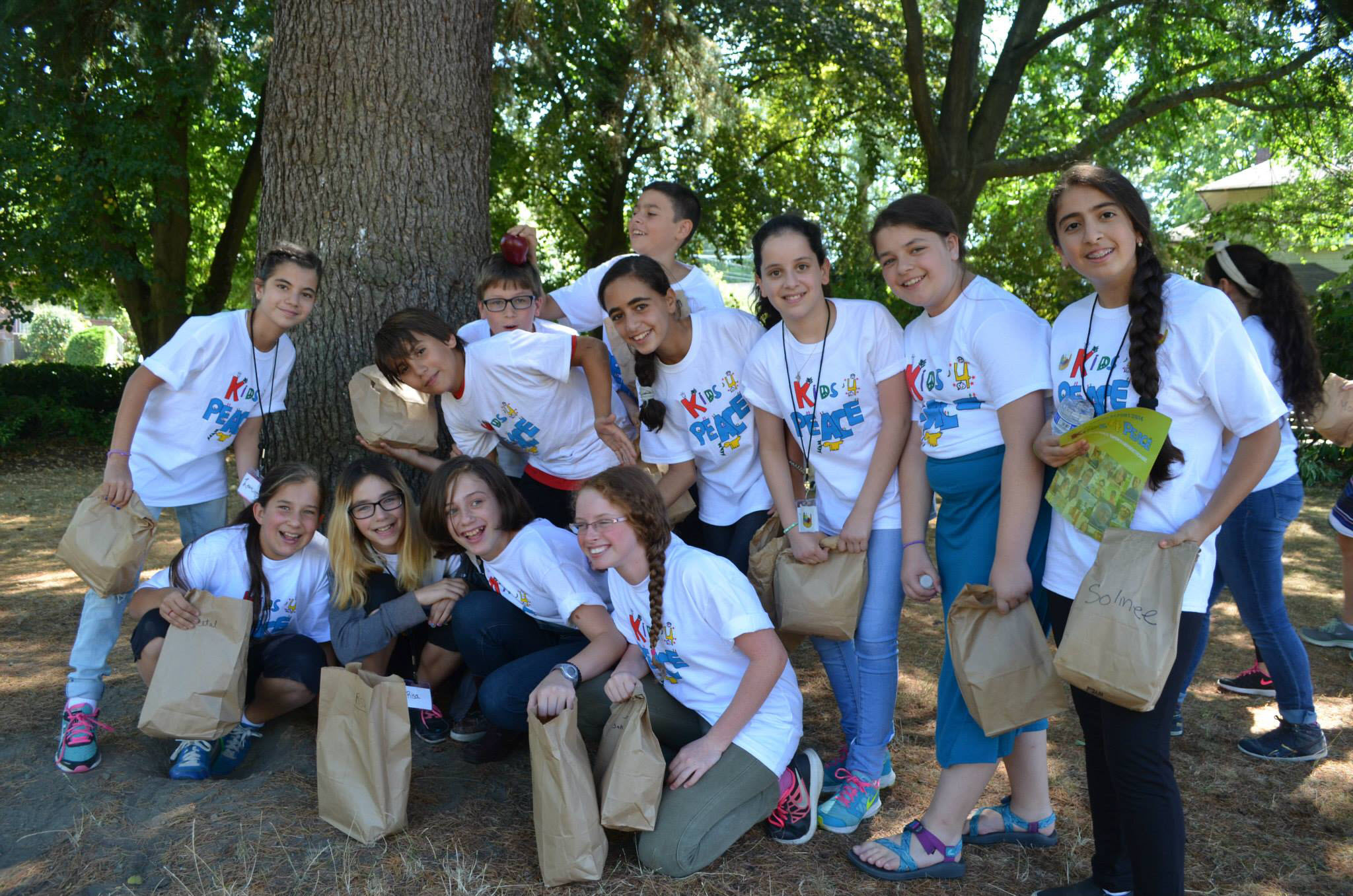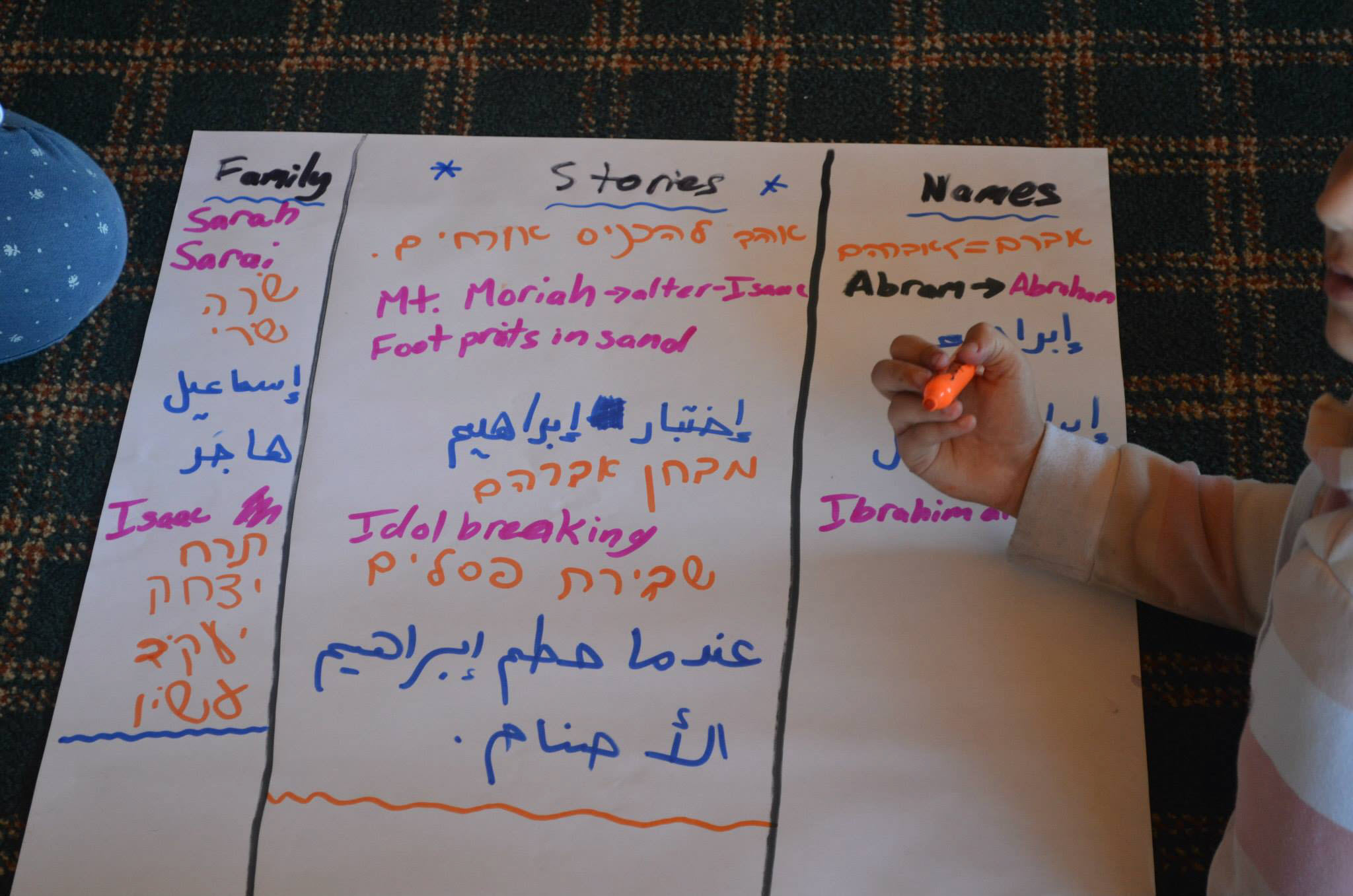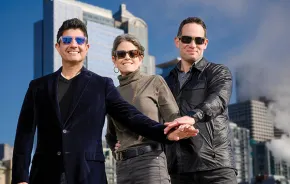
I’m not a historian. I’m a 43-year-old, college-educated American woman with access to a computer, books, magazines and television.
I remember, growing up in the 1980s, watching an episode of 60 Minutes with my family. On the screen, there was a gigantic, drab-colored map of the Middle East. A newsman, armed with a pool-stick-sized pointer, placed the sharp end of it at the center of the map and said, “The Middle East will be the start of World War III because of religious and cultural conflict.”
This was a big deal, because heretofore, we’d been fretting about being annihilated by Russia. Suddenly, the Middle East, another faraway land I knew little about, was added to the list as something to worry about.
I’m not Jewish. I’m not Palestinian. I’m not Christian. Though our family is not traditionally religious, we have always taught our kids to respect other people’s religions and cultures.
At the beginning of the summer my 15-year-old daughter, Sophie, announced that she had applied and been accepted to a three-week intensive program to learn how to speak Arabic through One World Now.
We live in the suburbs. Every day for three weeks Sophie woke at the crack of dawn, caught the city bus 111 from our neighborhood to Pioneer Square, alone. Every day she returned home, excited and full of hope. Suddenly, we were looking for people for her to practice Arabic with in our community …at the Farmer’s Market, at the gyro place, with a family walking around Target and a serviceman who installed our garage door — we discovered he was Israeli and spoke Hebrew.
It was a little awkward at first, walking up to strangers and asking if they spoke Arabic. But every time it was a very positive experience. They understood that Sophie wanted to connect.
A few weeks after the language camp was complete, Sophie was thrilled to share that she had been accepted as a camp counselor at the Middle East Peace Camp. For a full week, all day, at the UW Botanical Gardens which meant two buses: Issaquah to downtown Seattle and then to the U District.

We were conflicted.
On the one hand, we were so proud of her for seeking out these new opportunities. It was the first time we were at odds with nurturing and cultivating her passions, and fear about a subject fraught with conflict and turmoil.
At a family reunion, after Sophie proudly discussed her accomplishments, an aunt went so far as to say, “The next time we see you we hope you won’t be wearing a burka.”
It wasn’t until the Middle East Peace Camp graduation that I began to understand. Watching Sophie dancing arm-in-arm with Muslim and Jewish campers in a traditional Middle Eastern dance called Dabke as we all enjoyed a Hebrew hymn at a potluck full of the challah bread they had baked together and homemade hummus and pita bread.
Teaching your kids to “respect” someone else’s religion and culture from a distance is not the same as breaking bread and trying on their shoes and walking around for a bit. Not necessarily a mile, but long enough to understand where they’re coming from.
Sophie’s passion for peace and empathy empowered me to seek out a deeper understanding of the power of kids and peace as an antidote to conflict in the Middle East, around the world and in our schools in the United States.
Last week Sophie and I attended a small gathering celebrating an international organization called Kids 4 Peace.
Kids 4 Peace is a grassroots interfaith youth movement dedicated to ending conflict and inspiring hope in Jerusalem and other divided societies around the world.
This summer, 350 peacemakers have gathered around eight cities in the U.S. (which includes a Seattle Chapter) at Kids 4 Peace youth camps.
Muslim, Christian and Jewish kids are flown to the United States where they are joined by Muslim, Christian and Jewish American kids. They choose to meet in America because they want a neutral setting for the Israeli and Palestinian kids.
Youth from Jerusalem and the neighboring areas of the West Bank meet new friends from North America for a two-week summer program, where they learn about each other’s religious traditions, practice dialogue and conflict resolution, develop skills to be peacemakers and form lasting friendships across the barriers that divide their communities.

At the Kids 4 Peace gathering we heard stories of peace from campers.
“Jerusalem was the other side. We always learned to hate the 'Israeli.' I joined Kids 4 Peace to find out if the stereotypes were true or not … I met my dearest friend, Emmanuel, an Israeli. I felt like a different person,” a Muslim camper from Palestine, who is now a camp counselor, said.
I had a chance to speak with Jordan Goldwarg, a former history teacher and now the regionaldirector of Kids 4 Peace, about the power of a this type of curriculum in public schools. “I think that all kids can benefit from the kind of dialogue and peacebuilding programming that we do in Kids 4 Peace. It teaches them self-confidence and helps to build their self-esteem. It gives them tools to influence positively the relationships in their lives. And it empowers them to be leaders in their communities. As public schools become more and more focused on testing and so-called hard skills (like science and math), I would love to see them also embrace this kind of education that helps kids to develop empathy and to grow as human beings,” Goldwarg said.
Kids 4 Peace campers swim, play soccer and basketball. They bake challah together, sing songs, observe prayers and ask questions.
Episcopalian minister and executive director of Kids 4 Peace International, Josh Thomas, said, “The goal of the program is to enhance the sense of belonging, of being included while at the same time working for peace. Finding a solution and retaining one’s identity. The deep involvement with the parents in the program makes the organization so much more powerful. So when the kids go home they will have support.”
That may sound trite, naïve, rosy-eyed, and all the other adjectives naysayers use in response to conversations about peace in the Middle East.
But teaching children how to deal with conflict, without violence, while understanding the traditions and cultural identity of other kids and having fun together, is a powerful tool for peace. And this is exactly how peace was spread to me … through my daughter.









